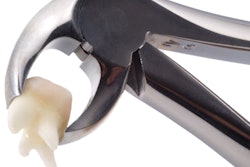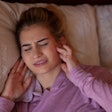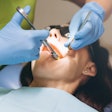
Fear of the dentist may have broad consequences for oral health, according to the findings of a new study. Children who expressed dental fear were more likely to experience caries, pain, and a poor perception of their own dental health.
The study authors believe their findings show that dental fear needs to be identified and addressed to help prevent long-terms consequences associated with oral diseases. Their suggestions and findings were published in the International Journal of Paediatric Dentistry (March 12, 2018).
"The results of this study highlight the importance of prevention and establishment of treatment to decrease caries, and consequently, pain," the authors wrote. "Also, positive experiences, which reduce dental fear, could have positive effects on oral health self-perception."
The lead study author was Marília Leão Goettems, PhD, a postgraduate student at the Federal University of Pelotas School of Dentistry in Pelotas, Brazil.
Broad consequences of fear
Fear of the dentist is a phenomenon experienced by children all over the world, and this fear has been associated with irregular dental visits and higher incidences of oral diseases. The authors of this particular study were interested in analyzing how children's dental fear was associated with their perception of their own oral health.
To find out, dental students performed oral health exams on nearly 1,200 children between the ages of 8 and 12 in Pelotas. The dental students recorded decayed, missing, and filled teeth in primary and permanent dentition. They also asked whether the children had experienced a recent toothache and if they were afraid of the dentist.

Nearly one-quarter of the children expressed fear of the dentist, and the researchers found a significant association between the perception of negative impact and caries, dental pain, and fear.
Children with both dental pain and dental fear were almost three times more likely to experience a poor perception of their oral health compared with children without pain or fear. Furthermore, children with dental fear and caries were 45% more likely to experience a poor perception of their oral health.
"The present study showed that, even in the absence of dental caries or pain, children with fear presented higher frequency of impact than children with no fear and no caries or pain," the authors wrote.
Fortunately, dental fear is something that can be addressed and mitigated through positive dental experiences, the authors noted. Treating dental fear early may also help prevent the development of dental diseases.
"The early identification and management of childhood dental fear are crucial for delivering effective dental treatment, which consequently, may reduce dental avoidance and improve children's oral health-related quality of life," the authors wrote. "Thus, improving children's coping skills and control in dental situations is important."
Moving forward
The researchers noted a number of shortcomings with the study, including that the children self-reported their fear and pain. As a result, the children may have underreported recent dental pain. Furthermore, the study included healthy children in one city in Brazil and may not be applicable to other children.
Nevertheless, the study reinforces the importance of managing dental fear early to help prevent the development and worsening of oral diseases. The authors hope their research will help to develop new tools to help children overcome their dental fear.
"The present study ... confirms that dental fear can modify the relationship between clinical indicators and oral health perception," the authors concluded. "This may improve our understanding of the nature of dental fear and might encourage the development of new measures to better guide clinicians in choosing appropriate fear-reducing interventions for individual patients."



















